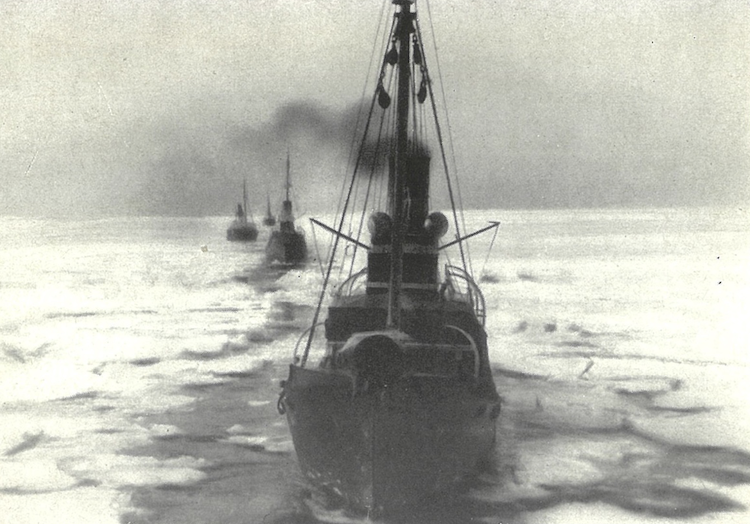69th IWC – Press release n°1
The 69th plenary meeting of the International Whaling Commission (IWC) will be held in Lima, Peru, from 23 to 27 September 2024.
A draft resolution on “food security” is submitted for approval to the 88 member countries of the IWC by the Republic of Guinea, with the support of Senegal, Gambia, Guinea-Bissau, Côte d’Ivoire, Ghana, the Republic of Congo, Saint Kitts and Nevis and Cambodia. This project “reaffirms its support for the sustainable use of marine living resources, including whales”.
It is directly inspired by Japanese propaganda. Mixing the nutritional needs of human populations, sustainable development and economic growth in a waffling language, the resolution adds to its recipe the inevitable attachment to an alleged cultural identity.
 Baleines et baleiniers (Whales and Whaling), Paul Budker,
Baleines et baleiniers (Whales and Whaling), Paul Budker,
Edition Horizons de France, 1957
However, the African populations bordering the Atlantic coast have no affinity for whale meat. The main exploitation of whales in West Africa was carried out between 1948 and 1965 by Norwegian mercenaries expert in explosive harpoons and French and British interests grouped together under the SOciété des PEcheries COloniales à la BAleine (SOPECOBA, Society of Colonial Whaling Fisheries). Five whale catchers with Norwegian crews and harpooners scoured the Gulf of Guinea, targeting humpback whales, Sei whales, fin whales, blue whales, and sperm whales too. The whaling station was located at Cap Lopez in the Ogooué river delta north of Port-Gentil, Gabon. The butchering workforce was mainly Norwegian, with a hundred or so temporary African workers employed to clean and collect the waste. In 1950, exports of whale oil and other by-products from French Equatorial Africa to France, England and Norway ranked 3rd in economic importance after timber and cotton exports. Whale meat meal was exported to France to feed livestock. The French cannery Amieux built a pilot workshop at the whaling station and produced a million tins of whale meat, but according to the “Chronique de l’Union française sur les Industries de la pêche en Afrique noire française” (Chronicle of the French Union on Fishing Industries in French Black Africa) published in L’Economie on March 22, 1951, “it does not appear that the natives particularly appreciated this food”.
The whaling industry has now disappeared in Africa and whales are protected by national legislations. The quarterly bulletins “On the Trail”* published by Robin des Bois (Robin Hood) since 2013 show that whale meat and blubber are opportunistically harvested in Senegal, Gabon and Madagascar after strandings. The meat is cut up and distributed despite warnings from local authorities. Guinea’s draft resolution falsely claims that whale populations are “healthy”. In fact, whales at the top of the marine food chain accumulate persistent pollutants from human activities in their flesh and blubber. They are subject to insidious poisoning from PCBs, PFASs, brominated compounds, pesticide residues, carcinogenic hydrocarbons and radioactive discharges. They sometimes carry pathogens, and the consumption of their meat is not without health risks for human populations.
In fact, to ensure food security for their 100 million inhabitants, the priority for the 7 African countries sponsoring this resolution should be to combat the plundering of their fisheries resources by Asian and European industrial fleets.
On the other hand, the proposal to create a sanctuary in the South Atlantic submitted by Argentina, Brazil and Uruguay is positive. This sanctuary would be connected to the Antarctic sanctuary, which celebrates its 30th anniversary this year. It would ban all commercial whaling in the South Atlantic Ocean below the equator between South America and West Africa. The management plan would allow better knowledge of whale populations, their migrations, the aggressions they suffer and the means to remedy them. It would also increase knowledge of the positive contributions of whales to the productivity of the world’s oceans and to climate regulation during their lifetime and after their death.
Indeed, whales fertilise the oceans by producing and spreading nutrients that favour the development of plankton. Whales are carbon sinks. Even after their death, they continue to provide services to ecosystems. Their carcasses and skeletons create oases of biodiversity. From cradle to grave, the life cycle of a whale is useful to the common good and to humanity.**
Whales are mythical and venerable animals, and the more they suffer the scourges of human inventiveness, voracity and restlessness, the more they command the respect of Robin des Bois and inspire solidarity. This is why, as early as June 1985, the association’s founding acts included the promotion of jojoba oil as a substitute for whale oil and participation in the International Whaling Commission. Robin des Bois will be present in Lima.
* “On the Trail” – Information and analysis bulletin on animal poaching and smuggling, available at https://robindesbois.org/en/a-la-trace-bulletin-dinformation-et-danalyses-sur-le-braconnage-et-la-contrebande/
** “Of whales and their usefulness”, 2010, Robin des Bois (pdf)
– “Fish Eat Whales”, 63rd annual meeting of the International Whaling Commission (IWC), Jersey, July 2011 (Robin des Bois’ press release)
– Resolution on Cetaceans and Their Contributions to Ecosystem Functioning, 2016-3
– Report of the IWC-CMS Workshop on Cetacean Ecosystem Functioning, virtual 19-21 April 2021
See also:
Imprisoned, impaled, harpooned, desecrated, June 10, 2024
 Imprimer cet article
Imprimer cet article








